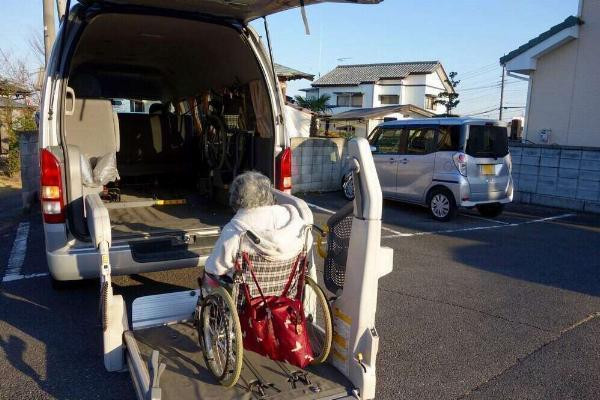Workers Comp For Non-Emergency Medical Transport in California

Non-emergency medical transport (NEMT) services play a crucial role in California's healthcare system. These services ensure that patients with limited mobility or medical conditions can access necessary healthcare facilities. However, the job comes with inherent risks. This is where workers' compensation insurance becomes essential. In California, workers' compensation laws are stringent, particularly in industries like NEMT, where employee safety is a primary concern.
Understanding Workers Compensation in California
What is Workers Compensation?
Workers' compensation is a form of insurance that provides wage replacement and medical benefits to employees injured in the course of employment. In California, this coverage is mandatory for all employers, including those in the NEMT industry. It ensures that workers who suffer job-related injuries or illnesses receive appropriate medical care and compensation for lost wages, without the need to prove employer negligence.
Importance of Workers Compensation for NEMT Providers
For NEMT providers in California, workers' compensation is vital. Given the nature of the job, which involves driving for extended periods and assisting patients with mobility issues, the risk of injury is significant. Workers' compensation protects both the employees and the employers. It ensures that injured workers receive the care they need while protecting employers from potential lawsuits related to workplace injuries.
Key Components of Workers Compensation for NEMT in California
Medical Benefits
One of the primary components of workers' compensation is medical benefits. These benefits cover the cost of medical treatment necessary to recover from a work-related injury or illness. For NEMT employees, this might include treatment for injuries sustained while assisting patients or during vehicle accidents.
Disability Benefits
If an injury or illness prevents an NEMT worker from returning to work, disability benefits are available. In California, there are four types of disability benefits:
Temporary Total Disability (TTD): Paid when an employee is unable to work for a limited time.
Temporary Partial Disability (TPD): Provided when an employee can work, but with limitations.
Permanent Total Disability (PTD): For workers who cannot return to work permanently.
Permanent Partial Disability (PPD): Given when an employee can work but suffers from a permanent impairment.
Vocational Rehabilitation
In some cases, an injury may prevent an NEMT worker from returning to their previous job. Workers' compensation in California offers vocational rehabilitation services, helping injured workers retrain for a new job or career. This benefit is crucial for those in the NEMT industry, where physical demands can be significant.
Death Benefits
Unfortunately, some workplace injuries can be fatal. In such tragic cases, workers' compensation provides death benefits to the dependents of the deceased employee. For NEMT workers in California, this includes financial compensation to the family, helping them cope with the loss of income.
The Process of Filing a Workers Compensation Claim in California
Reporting the Injury
The first step in filing a workers' compensation claim is reporting the injury to the employer. In California, employees must report the injury within 30 days. This is especially important in the NEMT industry, where injuries might not always be immediately apparent.
Seeking Medical Treatment
After reporting the injury, the employee should seek medical treatment from a healthcare provider authorized by the employer's workers' compensation insurance. In California, the employer has the right to choose the healthcare provider for the first 30 days of treatment.
Filing the Claim
The next step involves filing a workers' compensation claim with the employer. The employer is required to provide the necessary claim forms. Once completed, these forms should be submitted to the employer, who will then forward them to the insurance company.
Handling Denied Claims
In some cases, a workers' compensation claim might be denied. This could happen for various reasons, including disputes over whether the injury is work-related. NEMT workers in California have the right to appeal a denied claim through the California Workers' Compensation Appeals Board (WCAB).
Why NEMT Providers Must Prioritize Workers Compensation
Protecting Employees
Workers' compensation is crucial for protecting employees in the NEMT industry. It ensures that workers who are injured on the job receive the care and financial support they need to recover and return to work.
Legal Compliance
In California, failing to provide workers' compensation insurance is a violation of state law. Employers who do not comply face severe penalties, including fines and the potential closure of their business. For NEMT providers, ensuring compliance is not just about avoiding penalties—it's about fulfilling a legal and ethical obligation to their employees.
Financial Security
Workers' compensation also provides financial security for employers. By covering the costs associated with workplace injuries, it helps NEMT providers avoid the significant financial burden that could result from a lawsuit or a large medical bill.
Choosing the Right Workers Compensation Policy for NEMT Providers
Evaluating the Risks
When selecting a workers' compensation policy, NEMT providers must evaluate the specific risks associated with their business. This includes considering the likelihood of vehicle accidents, the physical demands on employees, and other job-related hazards.
Comparing Insurance Providers
Not all workers' compensation insurance policies are the same. NEMT providers should compare different insurance providers to find a policy that offers the best coverage at a competitive price. In California, it's important to choose a provider who understands the unique needs of the NEMT industry.
Customizing Coverage
Some insurance providers offer customizable workers' compensation policies. This allows NEMT providers to tailor coverage to meet the specific needs of their business. For example, a provider might offer additional coverage for specific risks, such as vehicle-related accidents.
Conclusion
Workers' compensation is an essential component of running a successful non-emergency medical transport business in California. It protects employees, ensures legal compliance, and provides financial security for employers. By understanding the importance of workers' compensation and choosing the right policy, NEMT providers can safeguard their business and support their employees in the event of a workplace injury.
Note: IndiBlogHub features both user-submitted and editorial content. We do not verify third-party contributions. Read our Disclaimer and Privacy Policyfor details.



